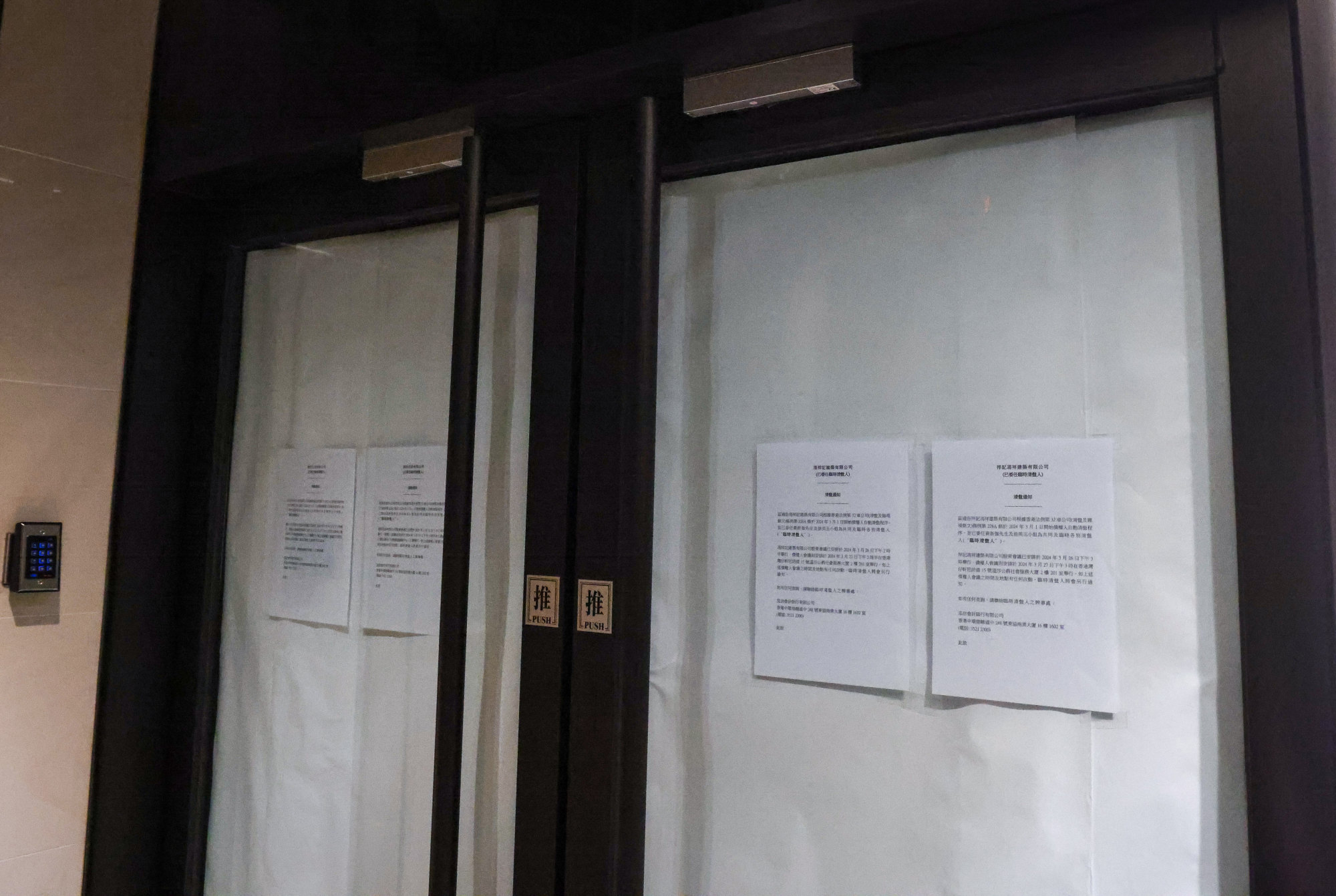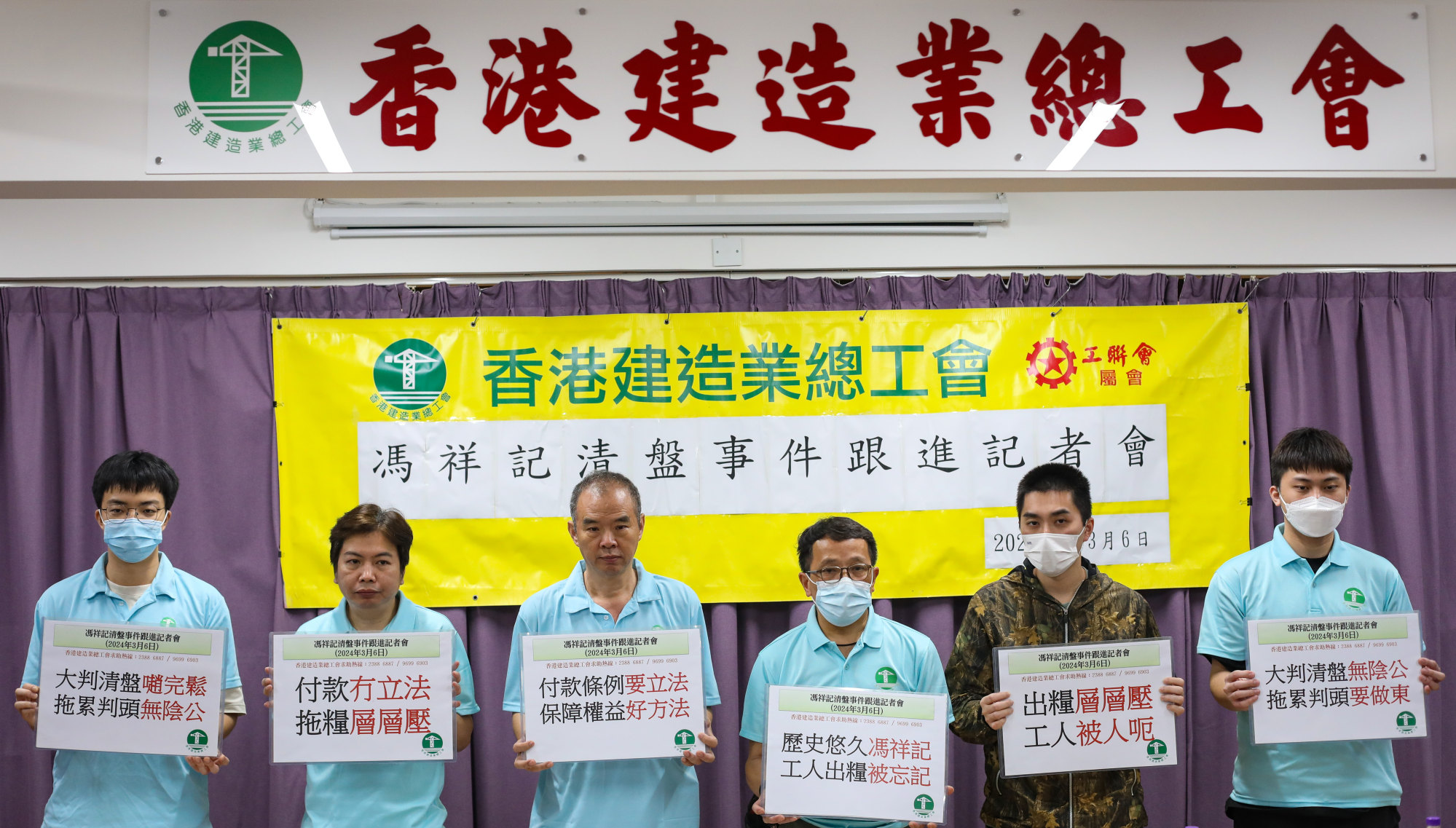Prominent Hong Kong contractor Fung Cheung Kee owed HK$150 million when it collapsed, trade union leader says
“The most unfortunate case we have heard of is a site manager, hired by Fung Cheung Kee. He paid more than HK$200,000 upfront from his pocket for urgent construction materials,” Ng told a radio programme.
“But the money cannot be compensated by the Protection of Wages on Insolvency Fund and it may also be challenging to claim it through the Small Claims Tribunal.”

The union leader said it would be best if the financially stable subcontractors paid the owed wages. But if they faced financial difficulties as a result of the incident, affected workers would have no choice but to file formal claims through the Labour Department, he added.
The department said it was highly concerned about the impact of the liquidation of Fung Cheung Kee on its workers, adding it would proactively follow up with individual employees.
It added it had also obtained information on existing project contracts and liaised with project owners to understand the salary arrangements for subcontracted workers and provide help to affected employees.
120 workers lose jobs after Hong Kong contractor goes bust
Established in 1980, Fung Cheung Kee was involved in a Mid-Levels luxury flats project by Emperor International Holdings, the Mount Pokfulam development, a residential block in Cheung Sha Wan, as well as a one-storey structure at Discovery Bay on Lantau Island.
A second-tier subcontractor representative, surnamed Cheung, told the same programme that Fung Cheung Kee had defaulted on project fees over the past six to seven years, involving 17 construction locations with a total amount of about HK$71 million.

The subcontractor was responsible for fixing reinforcement, erecting formboard and concreting at Fung Cheung Kee’s sites.
“We have pursued the outstanding debts, but often the company will not settle up the payments from previous projects before starting new ones, resulting in the accumulation of more debt,” Cheung said. “Even if they have new funds, they will not.”
While he acknowledged that such situations were common in the industry, he said he was still willing to continue working with Fung Cheung Kee because of their 30-year relationship when it had new funds and new projects.
‘Hong Kong should allow imported workers on smaller construction projects’
“Just like if you have eight lids for 10 pots, the pots will not boil over immediately. That is how the debt keeps accumulating. We never expected it to go into liquidation,” Cheung said.
He added he had been in contact with the liquidator, who had indicated that priority would be given to compensating the workers, followed by addressing the secured loans.
“I believe the chances for us as second-tier subcontractors to recover the outstanding debt are low,” he said. “I hope the government will investigate whether there has been any capital outflow from Fung Cheung Kee. In the long term, authorities need to enhance the financial transparency of major contractors.”